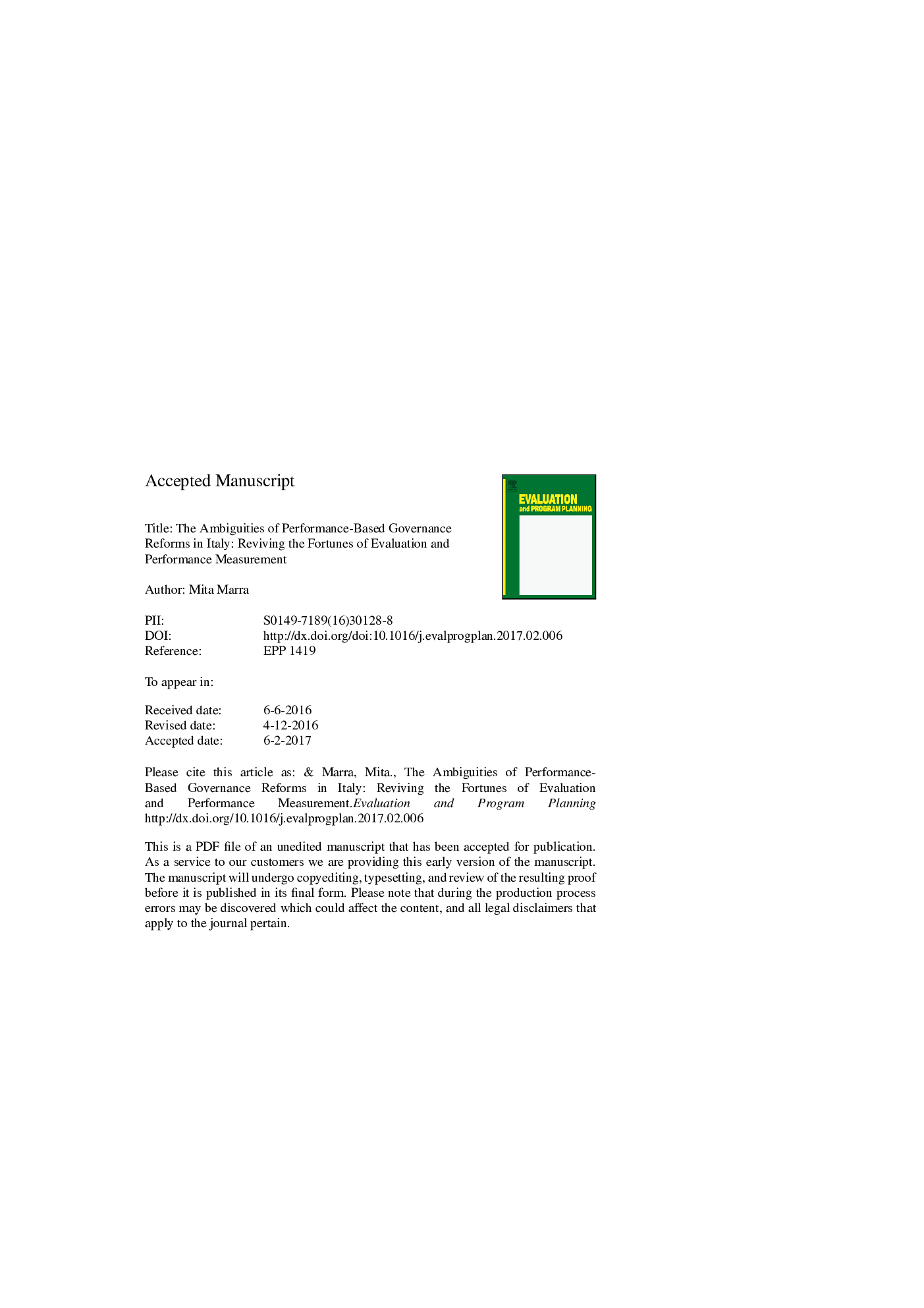| Article ID | Journal | Published Year | Pages | File Type |
|---|---|---|---|---|
| 6792025 | Evaluation and Program Planning | 2018 | 35 Pages |
Abstract
Over the past two decades, Italy's administrative reforms have institutionalized evaluation to improve program effectiveness, staff productivity, and results-driven accountability against waste and corruption. Across ministries, regional governments, universities, schools and environmental protection agencies, seemingly unexpected consequences have emerged out of the implementation of performance measurement and evaluation regimes within public organizations. Formal compliance to legally binding evaluation procedures, judicially-sanctioned managerial accountability and lack of cross-agency coordination coupled with long-standing cultural separations among evaluators are some of the ambiguities associated with a performance-based governance system within Italian public administration. Building upon the 'new governane theory,' and qualitative fieldwork, I explore the political consequences of evaluation and performance measurement for possible improvements. From a normative perspective, greater integration between program evaluation and performance measurement can support organizational learning and democratic accountability both at the central and local level.
Related Topics
Health Sciences
Medicine and Dentistry
Public Health and Health Policy
Authors
Mita Marra,
